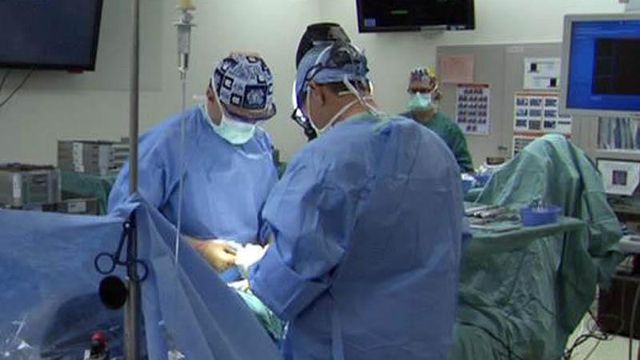Medical tax getting look from N.C. lawmakers
The legislature socked it to retail customers, smokers, drinkers and big earners with higher taxes last year to help close a budget gap calculated by Democrats at more than $4 billion.
Could hospitals or doctors' offices be next?
Legislative leaders are returning to Raleigh early to begin adjusting the second year of the state's two-year budget, and they are intrigued by a hospital or provider tax or fee because it could draw down three times as much extra money in federal matching funds for Medicaid.
The state deficit is expected to be $787.9 million for the 2010-11 fiscal year, which begins in July.
"We do have some major, major problems in being able to fund our Medicaid health care needs," said Dr. Bob England, D-Rutherford. "Everything's going to be looked at. Has to be."
Medicaid, the state-federal health care program for the poor, is on track to be $475 million over budget in North Carolina next fiscal year as more – and apparently sicker – patients enroll, legislative staff members told budget writers last week.
"It's worth considering," said Senate Majority Leader Martin Nesbitt, D-Buncombe. "Medicaid is there to serve the people, and we've gone past the point, in my opinion, of being able to serve people appropriately. We've cut to that point."
Hospital and doctors' lobbying groups in North Carolina oppose the idea, although they would receive higher Medicaid payment rates as part of any bargain.
"Our track record of getting hospital funds back has not been good," said Don Dalton, vice president of the North Carolina Hospital Association.
Hospitals statewide already give plenty to the state, Dalton said, noting that their financial losses for treating Medicaid patients alone have gone up 50 percent between 2006 and 2008, to $411 million, and charity care has increased 77 percent.
"Hospitals earn their tax exemption because we serve a charitable purpose," he said. "We're doing our part, and to tax us further sends us down a road of jeopardy."
England, a physician, said he would support the idea only if hospitals and doctors got back at least what they put in, if not all of the federal dollars as well.
"Knowing how physicians think and those of us who are providers, I'm not really surprised (by the opposition)," he said.
While discussions are preliminary and final revenue decisions at least two months away, the idea Democratic lawmakers would ponder openly more taxes in an election year after raising them by $1 billion last year shows they see a dwindling number of options to fix the state's fiscal problems.
"The aversion to increasing taxes right now is at full-bore odds with cutting a program that's already been cut too much," said Rep. Pryor Gibson, D-Anson, co-chairman of the House Finance Committee. "This is way beyond the lesser of two evils."
The concept isn't entirely new in North Carolina, one of 44 states that have at least one kind of Medicaid-related provider tax, according to the National Conference of State Legislatures.
A state usually levies the tax on a broad class of medical providers. All Florida hospitals, for example, are charged 1.5 percent of their annual net operating revenues, according to documents presented to legislators on the topic and obtained by The Associated Press.
The revenues help the state qualify for additional federal Medicaid funds. The 2009 federal stimulus law raised the match of federal money North Carolina can receive from $1.78 for every $1 from the state to $3.
North Carolina will collect $132 million this year in taxes and fees from nursing homes and intermediate care centers for the mentally retarded and nursing homes, leveraging into $396 million when Medicaid is added.
All of that revenue goes to increase reimbursement rates to treat patients, state Health and Human Services spokesman Brad Deen said. Any new tax probably would only earmark a portion of revenues to raise other Medicaid rates. The rest would let the state fill the budget hole by shifting more medical costs to the federal government - and federal taxpayers.
With giving providers the tax back through provider fees, "it seems like a fair and equitable thing to do," said Rep. Mickey Michaux, D-Durham, senior co-chairman of the House Appropriations Committee.
Federal law prevents guarantees that each hospital would recoup the tax, leading to the possibility hospitals with small percentages of Medicaid patients would give up more from the tax than taking in higher rates.
Dalton said the tax would probably not be passed on to patients because insurance companies have negotiated rates for certain services.
Michaux isn't sure fellow House Democrats would buy into the idea. Republicans, the minority in the Legislature, have been attacking the majority for the broad-based tax increases approved last year, instead of prioritizing spending, to balance the budget.
Nesbitt said he's believes there can be an open discussion of whether such a tax makes sense: "I'm not scared to look for good choices, whatever they're called."











